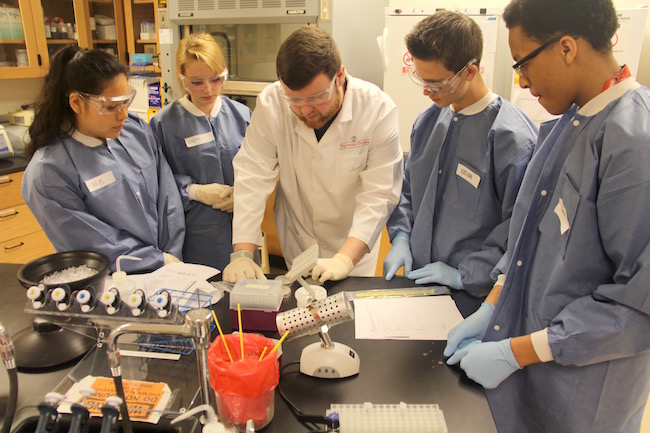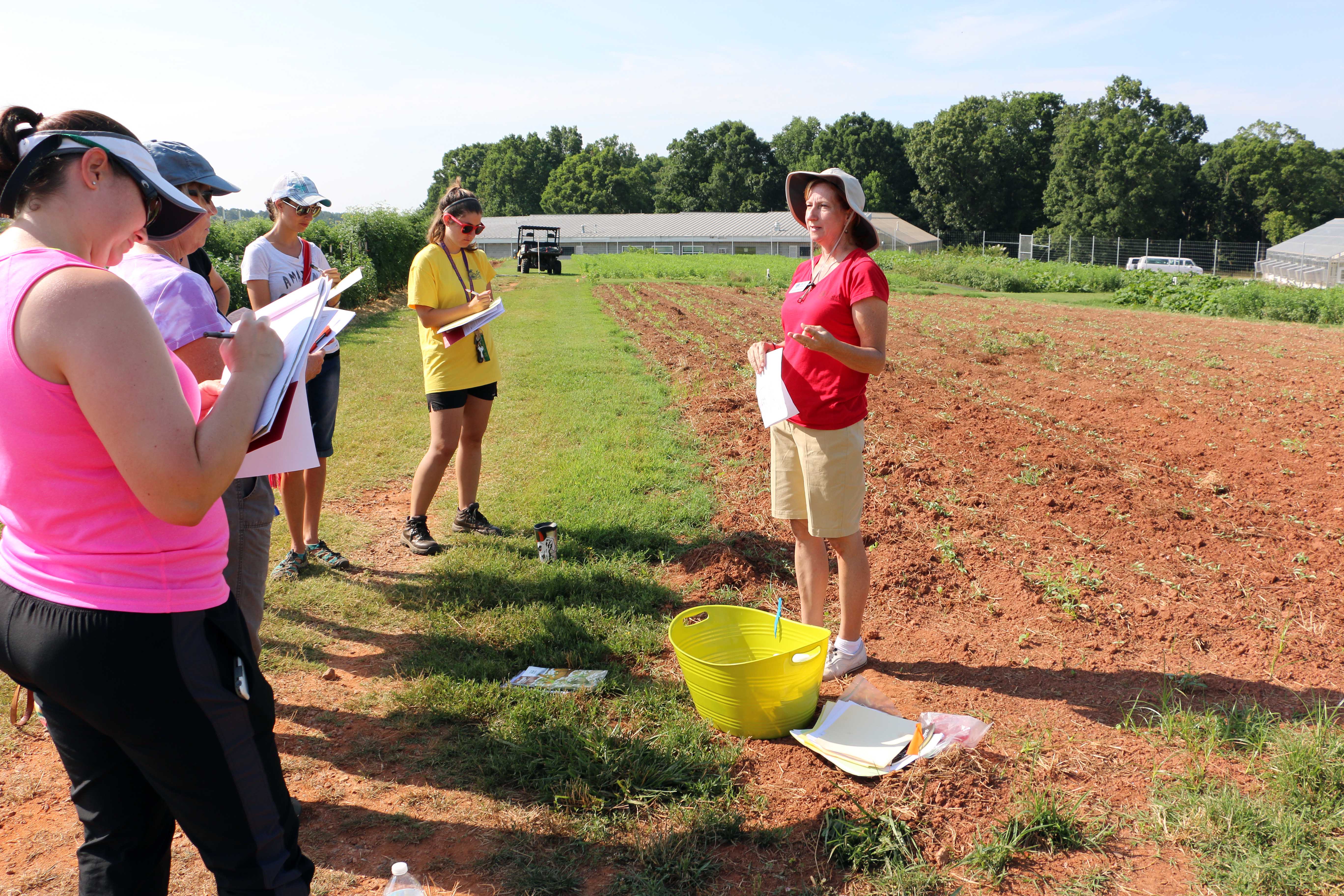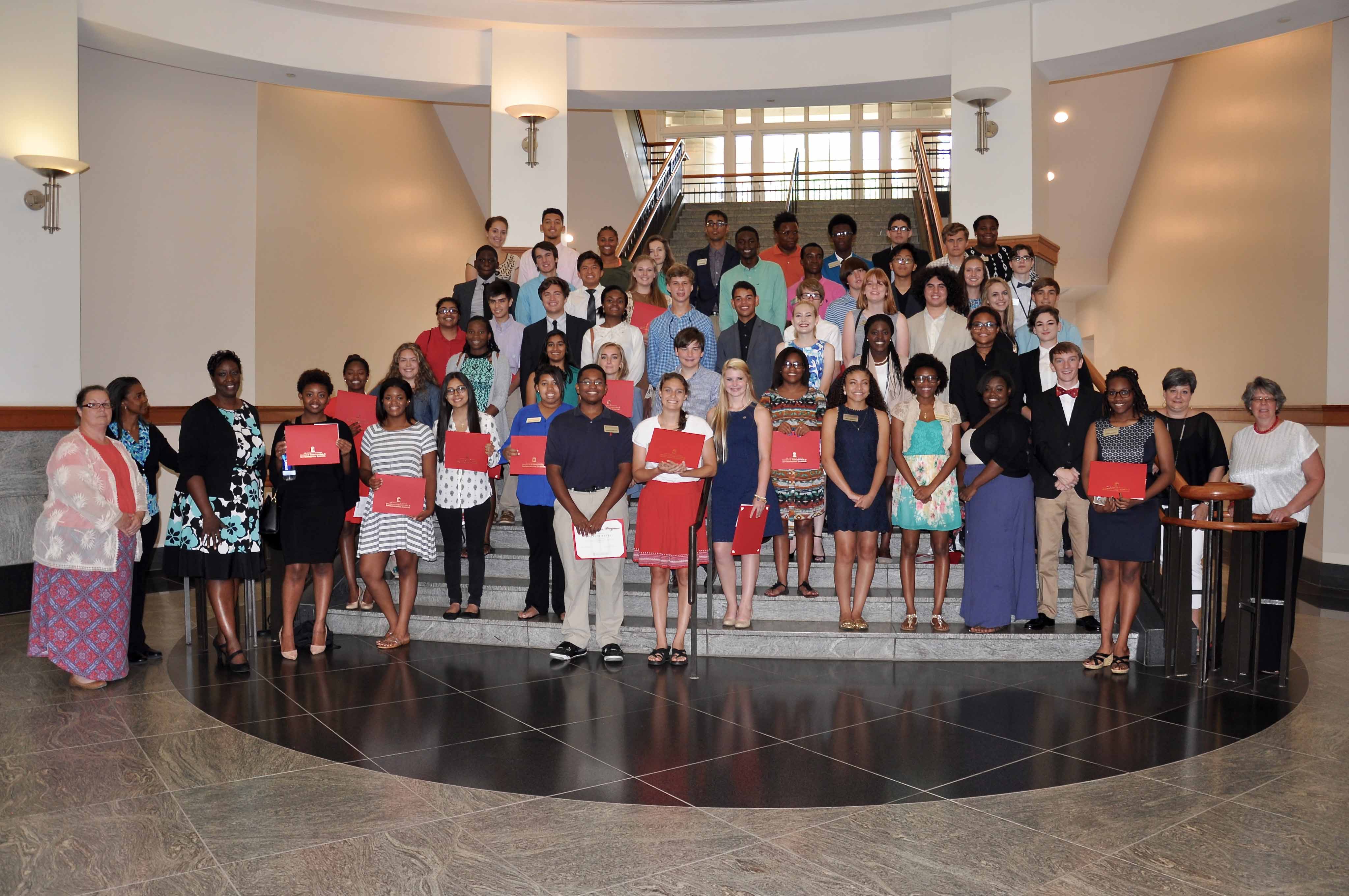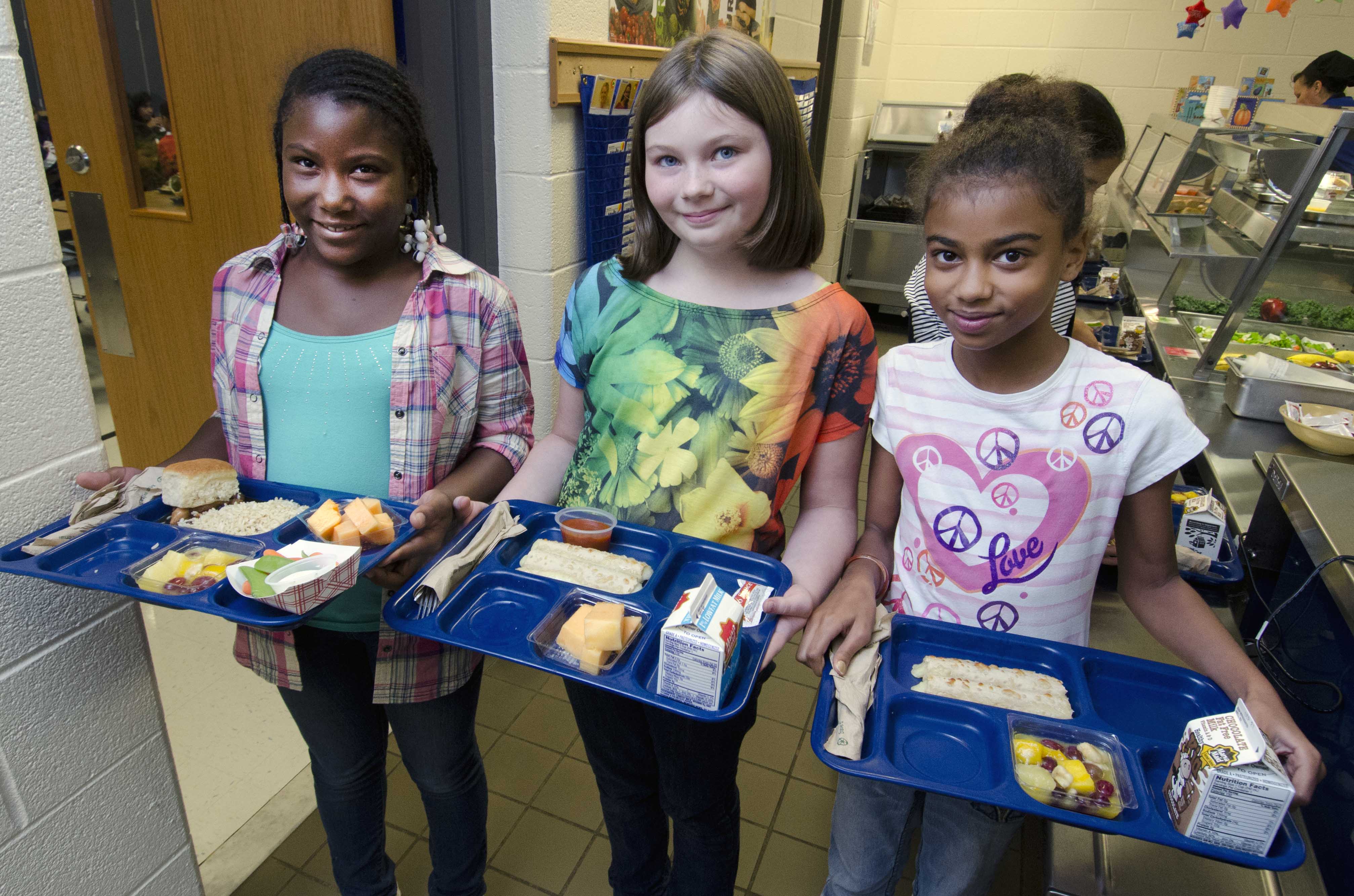The garden was full of berries, lettuce and radishes. But what grew best was knowledge.
School gardens are a catalyst for learning. And Lindsay Wyczalkowski, a third-grade teacher at Atlanta’s Mary Lin Elementary School, understands that power.
She uses her school’s garden to teach Greek mythology. Dressed as Greek gods and goddesses, she and her students stood about spinning myths on a spring day. In the process, they learned about science, art, literature and math.
Garden mythology
“We have a worm in the classroom and we wrote a myth to explain why worms are decomposers,” Wyczalkowski said. “We went to the garden to read about Demeter and Persephone and explained our observations about the changing seasons through myths.”
Wyczalkowski takes her students to the garden for class two to three times a week. Several of her fellow teachers do the same.
“Children out here are more focused, more energized, more engaged,” she said. “They are using their senses to learn, whether it is taste, touch, smell. These experiences are going into their long-term memory. They are not pouring out part of their brain onto a scantron; they are experiencing, and I think they will hold onto it for a lot longer.”
Learning agricultural science
In Putnam County, both 4-H and a Junior Master Gardener Program support a growing school garden program.
“We saw two things going on in our schools. “[First,] the students had little to no knowledge of agricultural activity in the state and no knowledge of how food was produced and brought to the table. [Second,] these kids lacked basic horticultural skills that I had at that age from hanging out with [my] parents and grandparents,” said Keith Fielder, UGA Cooperative Extension coordinator in Putnam County. “We saw science curriculum waning about the time schools started teaching for the test. Kids weren’t getting a lot of science.”
Fielder was asked to come into the elementary school with master gardeners to spruce up a memorial garden. After the garden project, they decided to stay and do more. The master gardeners designed and built a U-shaped raised garden bed and, with the help of retired teachers, they wrote classroom lesson plans.
“We were responding to requests,” he said. “We came into schools through 4-H and started teaching about the water cycle and delivering environmental programs on resource use.”
Touching hundreds of students
The program began in 2003 with a single garden. Today, more than 200 students meet after school twice a week. They learn in several garden locations and in greenhouses. The students grow just about every Georgia crop, except cotton and tobacco.
“We talk about the importance of the commodities to Georgia’s economy,” Fielder said. “And we grow watermelons for the watermelon contest.”
Fielder also incorporates healthy eating lessons. Produce from the garden is given to the lunchroom to be included in the school menu.
“We are teaching kids vegetables aren’t yucky,” he said. “In the fall, we dig sweet potatoes and make sweet potato chips. I see kids going back and stuffing them in their pockets to take home."
Outdoor educational tool
A garden can be much more than just a garden. While in it, students’ thoughts are directed to what they are doing, and they are developing interests in agriculture, the environment or horticulture, he said. And, most importantly, they are learning science.
“If you ever start it, it will hand you more opportunities than you ever thought,” Fielder said. “It is a wonderful educational tool you can tailor to whatever your situation is. But, you need support. We were lucky to have teachers to embrace it. The people who embrace it are why it works.”






